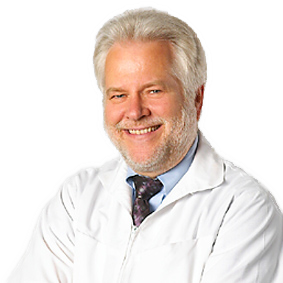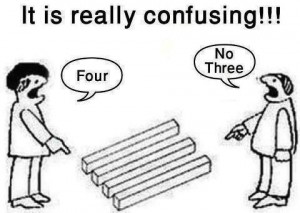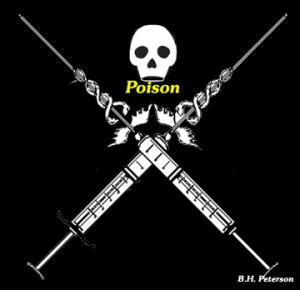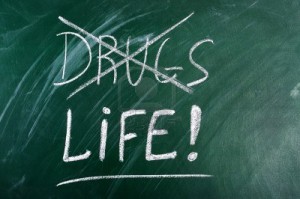The Deception of Perception
Are You Deceived?
When I grew up I remember a lot of cigarette commercials on television. They always had beautiful people having a glorious time usually in places we all dream to go to. What were the advertisers doing there? They were subtly giving us the message that if we would smoke we would be with beautiful people having a glorious time on a beach somewhere. Now intellectually we laugh at that but emotionally we get hooked by it. And you'd be surprised how many decisions you make based on emotions. Sure the toothpaste you buy you get because it's the best, right? Do you really know anything about the ingredients of the toothpaste you buy compared to any other brand? How about your laundry detergent? How about the type of health care you use?
Perception is how we see things, reality is how things really are. The problem is, we might not see things as they really are. Have you ever driven along in your car and seeing an object some distance away your mind tells you what it is, yet when you get closer you find something else? Yes your eyes were playing tricks on you. You saw (perceived) something other than what was true. The problem with this is that we make decisions based on faulty perception. Sometimes it's not a major issue other times it could be a life or death decision.
Let me ask you a question. If four jumbo jets crashed every week fully loaded with passengers (about 2000), week-in and week-out, would you fly? I mean the problem is so common that they don't even announce it on the television news anymore. But you knew every week three planes were going to crash, would you fly? Personally I think there'd be a lot fewer people flying. What if you didn't know air travel was this dangerous? Do you feel you would have all the necessary information to make a decision about travel?
Let's talk a second about health care. If you had a health problem or let's say two or three different conditions and you were prescribed two or three different drugs, would you take them? Even though the percent of people that would is dropping, many would. And most people who are taking drugs today actually think that the drug is helping them correct their health problem. That perception, of the drug helping them correct their health problem, is based on the improvement of their symptoms and their perception and expectation from a doctor's recommendation. If you go to the type of doctor that's shown on television saving lives every week and being an all-around great guy. Then you think the medical doctor that you go to is going to do the same thing for you. What if I told you that 2000 people a week die from drugs that their doctors prescribe for them. What if I told you a 1000 people die a week from unnecessary surgeries. What if I told you that medical doctors were the third-largest cause of death in the United States. Would you still want to fly in one of their planes? Where did these stats come from? The AMA. In 1998 an extensive study published in the Journal of the American Medical Association (JAMA) showed that 106,000 people die annually in American hospitals alone from medication side effects. Another 44,000 to 98,000 people in the U.S. die from "medical errors" each year. JOURNAL OF THE AMERICAIN MEDICAL ASSOCIATION, NOV. 20, 1996
For a second let's forget how dangerous drugs are. Let's focus on what drugs do. Do drugs cure disease? Do antacids cure heartburn? Do aspirin cure headaches? The answer to these questions are no. The drug companies who make these medications would never claim they are a cure. They would claim that they can improve symptoms. But symptom improvement and curing health problems are two entirely different things. And what about the side effects. It would be one thing if you're curing the problem to risk a few side effects. But the issue is that you can have some pretty serious side effects with a treatment that is just designed to make you feel better and not fix a thing. The fact is, common drugs that you look up in the PDR will have about two or three sentences for what the drug is designed to suppress and then eight are more paragraphs about side effects. The alarming thing is that most drugs can cause the very symptom it's supposed to suppress. Drugs are very toxic and they work against the body, in most cases, to help suppress the symptoms. They do nothing for the cause of the problem. So you put your health at risk just to suppress some symptoms. In natural health care our focus is correcting the cause. The symptoms usually disappear because healing is taking place.
One thing that can be frustrating is when patients ask questions like: Will this vitamin interfere with the drugs that I'm taking? This shows how programmed people can become when they're more scared of taking a vitamin than they are a drug. Vitamins heal. Drug suppress. Vitamins are safe and essential part of the foods that you eat. Drugs are artificial and cause damage to your body. Yet in our society some people have a perception that is opposite. Just look at all the drug commercials that you view on TV. Are they changing your perception of reality? You can answer that by looking at what type of health care you primarily utilize.
Natural health care is one of the fastest-growing healing arts in the United States. One of the reasons, is that it not only works it, in most cases, works better then medical care. And for sure it is one of the safest forms of health care in the world. I hope by reading this pamphlet this will help you focus on finding correction for your health problems and not just symptom relief. Time is the friend of disease. Suppressing symptoms with drugs gives the underlying disease process time to get worse. Seeking solutions for your health problems will help you not only maintain better health now but better health and function as you get older.








